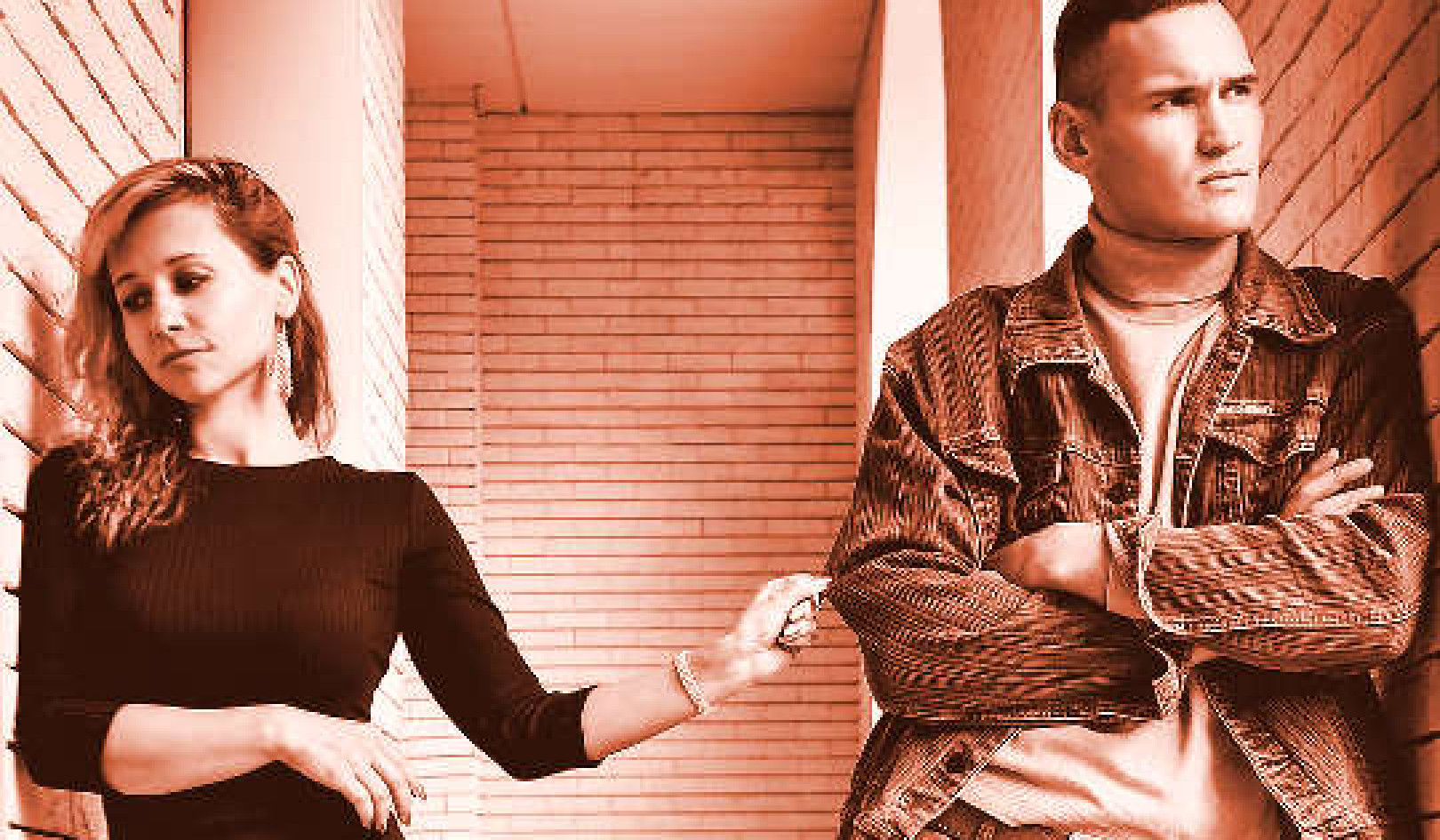
Why is it that the typical American feels stressed and increasingly unhealthy? Why has public discourse grown so toxic that some are suggesting violence as the solution to our current political problems?
When we examine modern society it's evident that our most venerable institutions are breaking down. Our national infrastructure is decaying; our youth are being imprisoned in increasing numbers; our economy is careening from crisis to crisis; our government is experiencing the lowest approval ratings ever; church attendance is in precipitous decline; and our schools are failing to educate our children.
Superficially at least, these challenges seem daunting. However, if we peer closely enough beneath our crumbling socio-economic façade we might spot a singular, root cause that's triggering this multiple system failure, and from that devise a cure that will propel us safely past this societal crisis point.
When we examine collective human behavior, today's most widespread social attitudes and activities (for which we've all been gleefully rewarding ourselves) are those typically associated with the phase of life we describe in our personal selves as adolescence. Individual adolescence can last up to ten years; what harried parents might refer to as their teenager's "decade of darkness."
Our Collective Adolescence
When we consider the evolutionary timeframe of our species, however, our collective adolescence appears to have spanned some five hundred generations and as many as ten thousand years. The sheer immensity of that time scale poses a challenge for us. It means we can't rely on the historical structures and systems of what have been juvenile civilizations to provide us with successful blueprints for how to build a future adult society.
It also means precious few individuals have ever walked among us who fully embodied the values and characteristics of adulthood, given that everyone who's ever lived has been hampered by having to function within an adolescent society. Perhaps that explains why, over time, various cultures have elevated a tiny subset of individuals to near-godlike status (or actual demi-god status).
Individuals like Buddha, Jesus, Krishna, Gandhi, Martin Luther King, Mother Teresa and Nelson Mandela exemplify, by their very natures, genuine adult values. Often in the past these fully self-actualized beings were murdered by their own societies, because their innate nobility caused their juvenile societies to feel shamefully unworthy by comparison.
Refusing To Resonate At An Adolescent Energy Level
Because humans are social creatures, our natural tendency is to adjust our internal energy field until it resonates at the consensus (group) level. Genuine adults though, refuse to resonate at an adolescent energy level, despite it being the resonant energy of the society. And while it's admittedly tough behaving like an adult in a room full of hostile teenagers, it gets easier when more adults decide to enter the room.
We also know that a single, self-empowered adult can subdue a host of angry juveniles by his or her very presence; consider the student in Tiananmen Square who stood up to an imposing array of tanks.
Today, more people are being socially pilloried than ever before, which hints at the collective shift that's now occurring in human consciousness. Consider the irrational hatred of President Obama, which has often been attributed to race. In fact, that hatred seems more directed at the "foreign" (i.e.: reasonable, caring and compassionate) way he comports himself, which agitates his detractors by its very nature. It angers them to have to listen to someone exhorting them to be kind, caring and loving, to think long-term and honor their deepest core values, when what they want to do — and what our systems have conditioned them to do — is satisfy their juvenile material cravings and assuage their emotional insecurities.
Obama's demonization then, is metaphorically comparable to the crucifixion of Jesus. He's another in a long line of self-actualized adults who've risen to prominence and been forced to suffer extensive social abuse, simply because he's refused to downshift his own adult energy field to resonate with the energy of the collective.
Our Juvenile Society Is Just Now Entering Species Adulthood
The moment we as individuals accept that we're indeed part of a juvenile society that's just now entering species adulthood, we must also acknowledge that the behaviors that served us in our juvenile phase will not be the same behaviors that will serve us in that adulthood. Our individual energy field will either be part of the problem or become part of the solution. That means we must do what's necessary to shift our personal energy field to the adult level, despite the fact it may irritate the adolescent collective.
At the same time — because we have no historical societal model to serve as a blueprint — we will need to figure out how to craft an adult society out of what remains of our decaying juvenile systems, in ways that nurture the continued self-actualization of our species.
We can begin by reflecting back on our personal adolescence, recalling how we made our own transition into young adulthood. We can also study the natural world (which is older and wiser than humans, though we're loath to admit it) and notice how nature has managed to thrive for countless eons. (We may be a juvenile species, but we're living within a very adult biosphere.)
The Challenges of Adolescence
We know that during adolescence we all had to overcome difficult personal challenges. Some examples are:
- Coping with rapid and uncontrollable physical growth
- Learning to correctly distinguish right from wrong
- Learning to express our unique talents, skills and abilities
- Understanding the world and our rightful place in it
- Finding the necessary resources to facilitate our future success
- Successfully tackling unfamiliar problems
- Overcoming our craving for external rewards and our fear of punishment
- Moving beyond obsessive self-absorption and embarrassing self-consciousness
- Overcoming feelings of insecurity, isolation and alienation
- Learning to accept responsibility for our attitudes and actions
- Learning to make good, life-affirming decisions
- Dealing with raging hormones and sexual obsessiveness
- Severing our dependence on youth, strength, beauty, vigor and/or mental prowess to gain advantage over others
- Surviving our own brashness, recklessness, self-destructiveness, short-sightedness and arrogance
- Overcoming the need to win at any cost
- Rejecting physical violence and/or emotional bullying as a means of controlling others
- Rejecting cliquishness and group-think as appropriate ways to belong
The above is by no means an exhaustive list of juvenile challenges, but it certainly is exhausting to contemplate. We humans must therefore forgive ourselves if we feel a bit overwhelmed at this stage of our species evolution, considering the magnitude and breadth of what we've already accomplished.
So far we've managed to explore and colonize an entire planet. We've successfully exploited our planet's resources, built tools and cities and invented amazing technologies. We've examined the innards of atoms and the vastness of outer space. We're learning to co-exist peacefully with one another despite our differences, and to share wisdom and explore beliefs through the free exchange of ideas — and so far we've managed to avoid our own extinction. These are some heady accomplishments.
Even as we now turn our attention to addressing more complex challenges, our ancestors deserve our respect and gratitude for having steered us through the rocky rapids of species adolescence.
From Species Childhood to Species Adulthood
Our virility, rashness, curiosity, physical prowess and assertiveness have helped us bridge the gap between species childhood, during which we were simple dependents in nature's vast garden, and species adulthood — the shining promise of which is just beginning to crest the horizon. Even so, we know that the crude means children use to manipulate their environment (temper tantrums, crying jags, or running to their mother for consolation) become less effective with time. So too do the methods juveniles use to control their world lose their effectiveness.
But what are the more nuanced values and complex behaviors exemplified by adults? And how might we, on a transpersonal (societal) level, begin to manifest them and become an adult society?
The obvious shift occurring between adolescence and adulthood is a cessation of rapid physical growth. That doesn't mean adults stop growing — they simply grow wiser, more compassionate and competent over time, given more life experience. There's obviously a finite upper limit to material physical growth, yet there doesn't appear to be a limit to how wise or compassionate a person — or a species — might become. It therefore seems reasonable to assume that as an adult society we'd decouple ourselves from using physical growth as our primary metric for success, and would instead focus on becoming wiser and more compassionate, and on serving as ever-better stewards of the living world that supports us.
From Narcissism to Wholeness
Additionally we know that adolescents hold a narrow, highly narcissistic worldview. For a teenager the most important question seems to be: How do I get as much as I can from this life? Adults, on the other hand, appropriately contextualize themselves as members of a larger living system. They perceive reality as a series of small wholes nested within ever-larger wholes, and acknowledge that their survival depends on the health of all the larger wholes in which they're nested. Atoms create cells, which create organisms, which create species, which create ecosystems, which create biospheres…and on and on it goes, eternally and infinitely, both inward and outward.
Proper contextualization readily resolves the age-old feud our juvenile species has been conducting with itself. We've been arguing for too long over which rules supreme: the individual or the society. What's apparent to adults is that society thrives when the bulk of its members are happy, and when all constituents are thriving and freely exchanging their gifts as integral parts of a healthy, unified system. They further grasp that, within such a system, individuation and specialization can and do thrive.
The fear of "enforced conformity" is an imaginary monster under the adolescent bed, because a living system will only flourish if it nourishes and supports its disparate members through its abundance. A juvenile society wields the fear of lack like a bludgeon. It manufactures scarcity, doling out goods to manipulate behavior, since the adolescent (selfish and narcissistic) worldview does not lend itself toward cooperative social behavior. That's why creating collective abundance — upon which everyone draws as needed, and to which most contribute out of gratitude for the larger system's support — will be viewed as a primary goal for an adult society.
Adults Have Defined Their Life Purpose
We also know teens spend inordinate time and energy pondering who they are and why they're here. Adults, on the other hand, have defined their life purpose and have disciplined themselves to fulfill it. That frees them to direct any excess mental and physical energy toward resolving whatever challenges arise.
An adult society would therefore create a resonant field of agreement around its values and shared purposes. It would satisfy everyone's basic needs without asking its members to struggle to survive. It would direct collective attention more outward than inward, measuring its health by how well it interfaced with the natural world that supports it. That means much of its energy would be spent stewarding the natural world to encourage greater abundance within the planetary ecosystem. While the needs of its own species would remain an integral part of its focus, the wants of its species would no longer claim precedence over the health and well being of the larger ecosystem.
It's also true that adults prefer autonomy, self-actualization and serving a higher purpose to cliquishness, bullying and using violence to solve their problems. Nor do they need praise or material rewards to stoke their self-esteem; they decide for themselves how to extract meaning from — and infuse value into — their lives.
The Give and Take of Adulthood
Adults shoulder responsibility as the price paid for the freedom to determine their own destiny. Clearly then, members of an adult society would appreciate the dynamic balance between giving and taking. They would honor life's natural ebbs and flows, aware that what each person contributes changes dramatically over time, based on age, health and overall life experience.
The society would surrender the juvenile compulsion to measure the disparate contributions of its members and weigh them against each other to ensure that everything was turning out "fair." Rather, it would monitor the dynamic balance within the entire system to measure its success, and would do what was required to foster ongoing dynamic balance.
The United States and Species Adulthood
With regards to the United States, as we step into species adulthood we can look forward to a time when this nation will no longer rely on brute force to elevate our nation above all others. Instead of shouting "America best!" we'll instead be focused on implementing our core values here at home. We'll address our challenges with optimism, and we'll trust our collective wisdom as we engage with other cultures.
We'll end our longstanding addiction to melodrama; aware that our vast, mysterious universe is way more fascinating than the tales we've been repeating about our victimization by others. We'll also cease relying on experts to tell us how to behave whenever unexpected events cause societal pain. Instead we'll sink into collective stillness, granting ourselves the spaciousness to formulate the most reasoned, compassionate response we can imagine to whatever it is that has harmed us.
Our focus, while we're making this transition, should not be figuring out how to do everything perfectly right away, or even on deciding what needs to be done. We'd be best served by each of us anchoring an adult worldview within our personal psyche, and then supporting others in doing the same for themselves.
Once enough of us have grounded an adult perspective as our preferred worldview, it will coalesce in the collective consciousness and automatically supplant the adolescent worldview we've been relying upon to frame our deliberations in the past. This is the crucial first step, because until such time as an adult worldview generates enough mass resonance to overcome our highly calcified juvenile worldview, any changes we make to our systems will lean on existing adolescent attitudes and behaviors to enforce their social memes. That will hamper our ability to evolve.
Anchoring An Adult Worldview Within Ourselves
Based on years of observation and social engagement, I'm convinced many people are already anchoring an adult worldview within themselves. They're coming forward in every social arena to offer brilliant, sometimes radical suggestions around how our failing systems might be improved. Our willingness to listen to others with respect, to ask probing questions and to experiment with unfamiliar ideas will be crucial to our evolutionary success.
The good news is that, once we enter into our species adulthood, a powerful wave of relief should wash over us all. We'll have collectively survived life's toughest transition, the one that most often leads to a tragic, untimely death. How wonderful it will be to cast aside our feelings of incompetence, along with the fear that we'll never be good enough to manifest what is best about ourselves.
Humanity Is Beginning A Brand New Chapter
As adventuresome and filled with discovery as humanity's teenage era has been, that chapter is coming to an end. We're all blessed to be here at the exact moment when humanity is beginning a brand new chapter, one we can fill with intimacy, caring and social harmony. The joy that will arise within us all upon discovering our species' divine purpose and fulfilling it will supplant the long, arduous adolescent quest we've been on to wrest meaning out of life.
What a miracle it is to be alive at this time — to be tasked with the challenge of becoming the change we long to see in this world. I like to believe we're up for it. Do you?
Copyright by Eileen Workman.
Reprinted with permission from the author's blog.
Book by this Author
Raindrops of Love for A Thirsty World
by Eileen Workman
 A timely spiritual guide to surviving and thriving in today’s pervasive, gloomy atmosphere of alienation and fear, Raindrops of Love For a Thirsty World, lays out a path to life long self-actualization, and reconnection through a shared consciousness.
A timely spiritual guide to surviving and thriving in today’s pervasive, gloomy atmosphere of alienation and fear, Raindrops of Love For a Thirsty World, lays out a path to life long self-actualization, and reconnection through a shared consciousness.
Click here for more info and/or to order this book.
About the Author
 Eileen Workman graduated from Whittier College with a bachelor’s degree in Political Science and minors in economics, history, and biology. She began working for Xerox Corporation, then spent 16 years in financial services for Smith Barney. After experiencing a spiritual awakening in 2007, Ms. Workman dedicated herself to writing “Sacred Economics: The Currency of Life” as a means for inviting us to question our longstanding assumptions about the nature, benefits, and genuine costs of capitalism. Her book focuses on how human society might move successfully through the more destructive aspects of late-stage corporatism. Visit her website at www.eileenworkman.com
Eileen Workman graduated from Whittier College with a bachelor’s degree in Political Science and minors in economics, history, and biology. She began working for Xerox Corporation, then spent 16 years in financial services for Smith Barney. After experiencing a spiritual awakening in 2007, Ms. Workman dedicated herself to writing “Sacred Economics: The Currency of Life” as a means for inviting us to question our longstanding assumptions about the nature, benefits, and genuine costs of capitalism. Her book focuses on how human society might move successfully through the more destructive aspects of late-stage corporatism. Visit her website at www.eileenworkman.com
Another Book by this Author
at

Thanks for visiting InnerSelf.com, where there are 20,000+ life-altering articles promoting "New Attitudes and New Possibilities." All articles are translated into 30+ languages. Subscribe to InnerSelf Magazine, published weekly, and Marie T Russell's Daily Inspiration. InnerSelf Magazine has been published since 1985.

Thanks for visiting InnerSelf.com, where there are 20,000+ life-altering articles promoting "New Attitudes and New Possibilities." All articles are translated into 30+ languages. Subscribe to InnerSelf Magazine, published weekly, and Marie T Russell's Daily Inspiration. InnerSelf Magazine has been published since 1985.





























